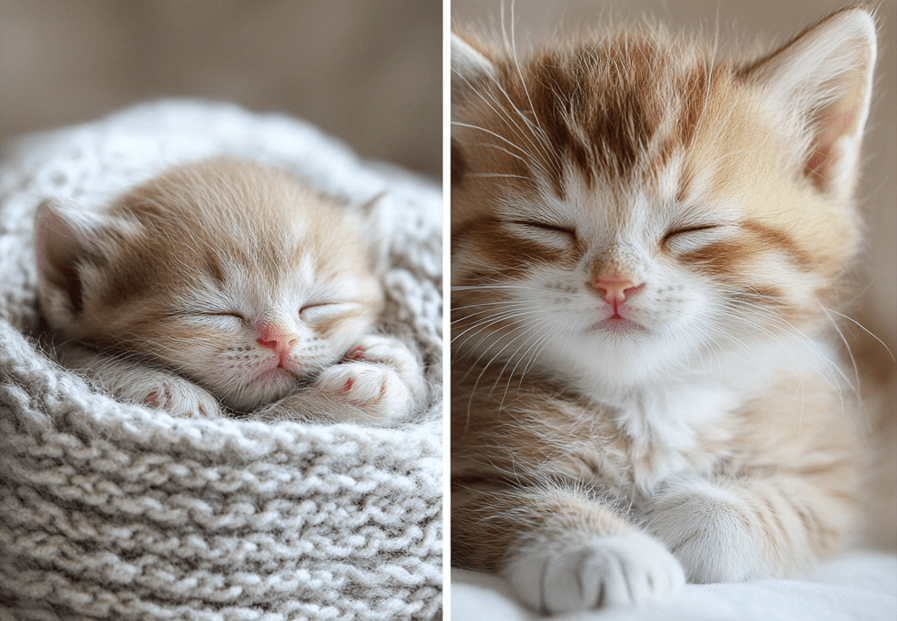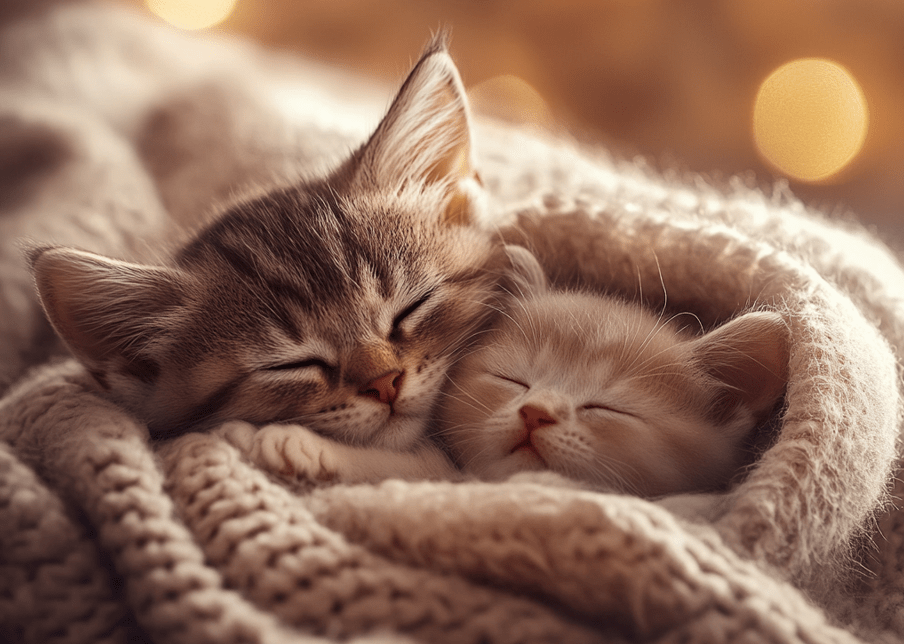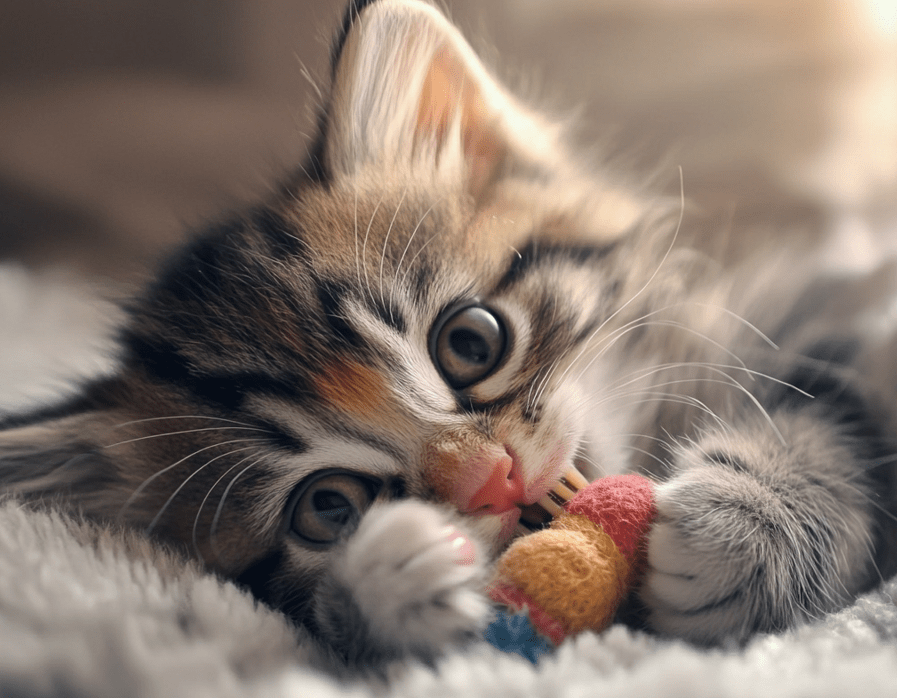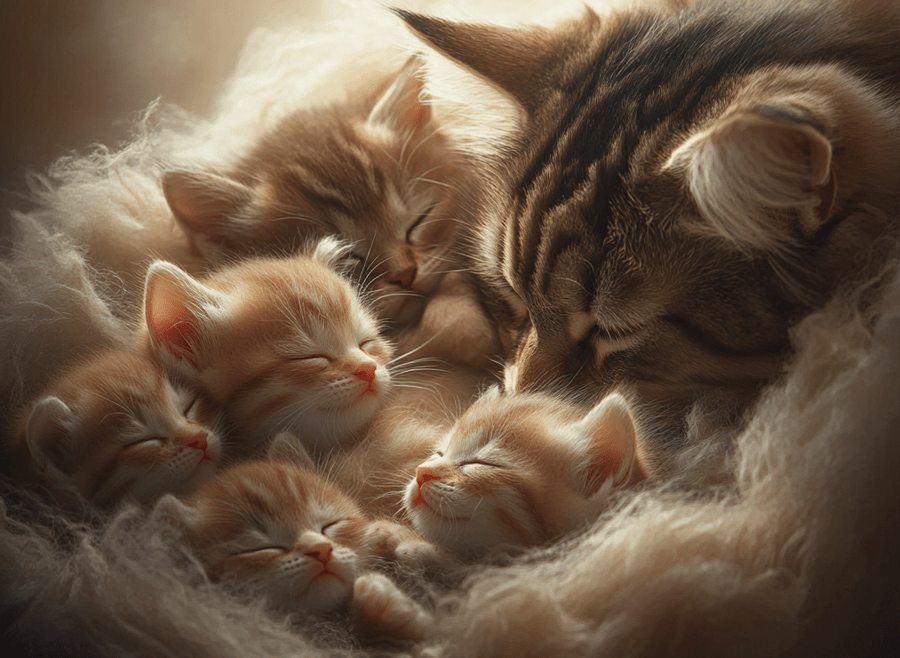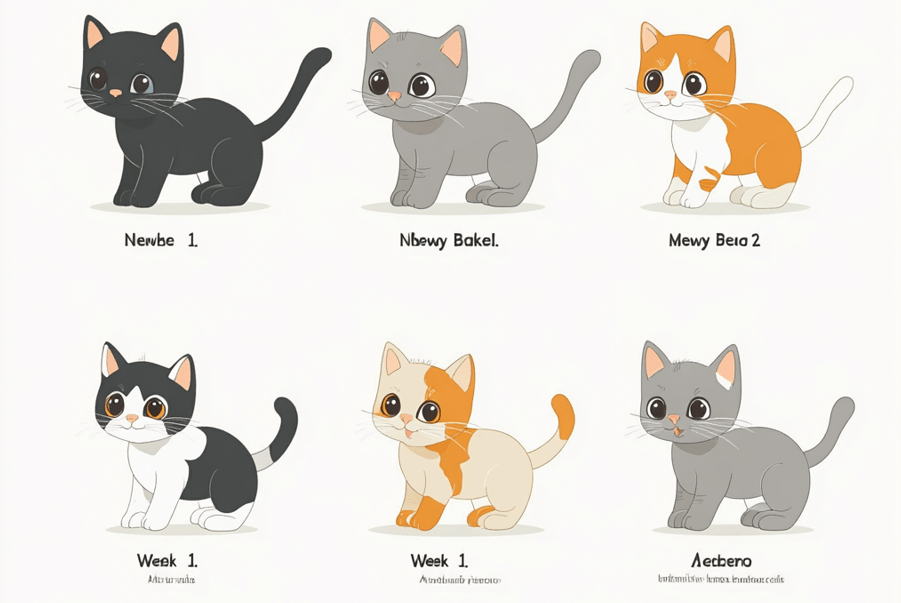
The growth of a kitten from a newborn to an adult cat is often a very impressive process, and even more so when one considers just how fast those tiny kittens change. New-born kittens are blind, and cannot see until 10-12 days after birth, they may also have little (if any) mobility due to their underdeveloped internal functions. They cannot survive without their mom who provides them with her warmth, nourishment and protection but within weeks, they go through profound changes that affect their body functions, intellectual abilities and social interactions. They hardly know what to do with themselves when they first open their eyes, then quickly begin to look about as if bursting with the wonder of exploration that only grows through years in which our self-constructed prisons close ever tighter around us.
They are expanding at an incredible rate as they move into the early part of their lives. They begin to display the confidence, independence and agility of a fully developed cat by around eight weeks old. And during this transitional period which seems rather brief to us, a number of important developmental milestones happen in the life of a kitten. These milestones involve walking, learning to coordinate their limbs, socializing with humans and other pets, and eventually working out how to interact with their environment.
The 8 weeks in a kitten’s life is critical to their overall behavior and health as grown cats. The kind of nutrition, social structure and early experience that they receive at this point are essential in who they will become. It is the age of maximum physical and mental development that lays the foundation for cats’ lifelong health hence an important phase in kitten development timeline.
To watch the summary of this article, just watch this video-
How to Tell How Old a Kitten Is
Kittens are fast growers in the first half year of life. The following timeline gives an estimate of how much a puppy should be weighing & what they should be developing during these 8 weeks. This article could be used as a guideline to help approximate how old your kitten is:
1.Newborn
2.Week 1
3.Week 2
4.Week 3
5.Week 4
6.Week 5
7.Week 6
8.Week 7
9.Week 8
Use these stages to chart your kitty’s progress and gauge his age.
Newborn Kitten:
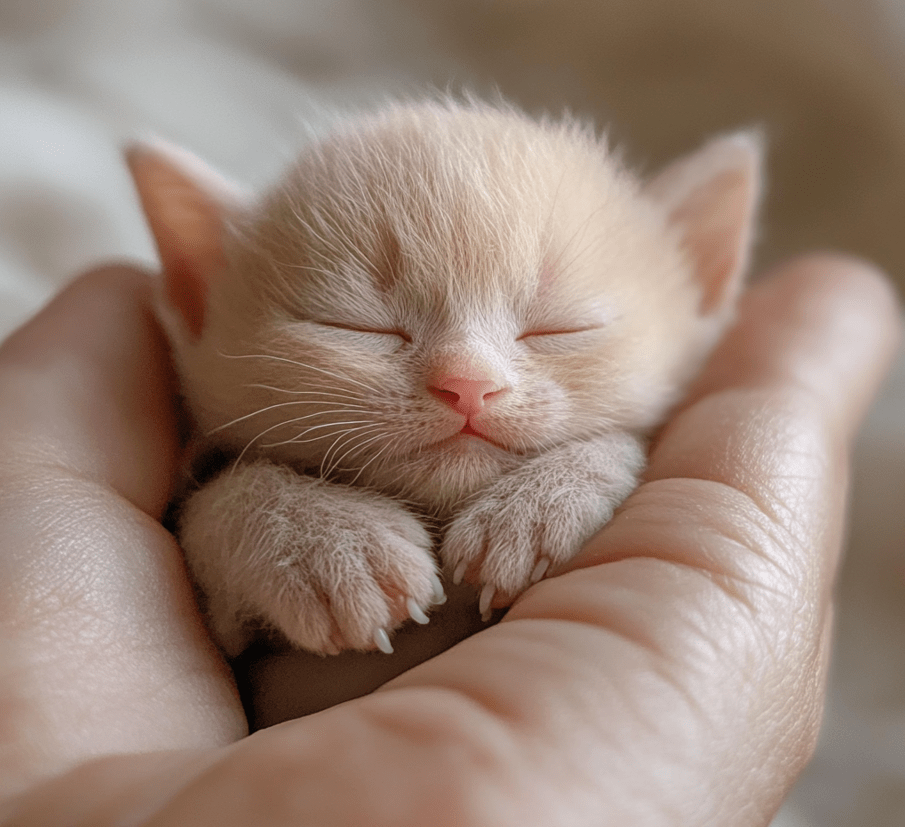
Physical Development: As said above, newborn kittens are so small that they can fit in the palm of a hand. Their claws still do not retract and they have neither teeth nor a gag reflex. At this point in time their eyes and ears are also fully closed. Kittens have an umbilical cord that dries up and falls off the stomach after about three days.
Behavioral Development: Newborn kittens are blind and deaf which means they cannot see or hear, but their sense of smell is very well developed so this is the only way to explore the elements that surround them. They are suckled by their mother and instinctively go in search of warm shelter near her so it is exceptionally important that they stay very close to their mum.
Average Weight: 3 to 5 ounces
Critical considerations: Kittens need to get colostrum from their mother during the first 18 hours of life. In the absence of this, they are susceptible to infections until about six weeks old. In case the kitten is an orphan, they must be bottle-fed with kitten formula every 2 to 4 hours.
Week 1:
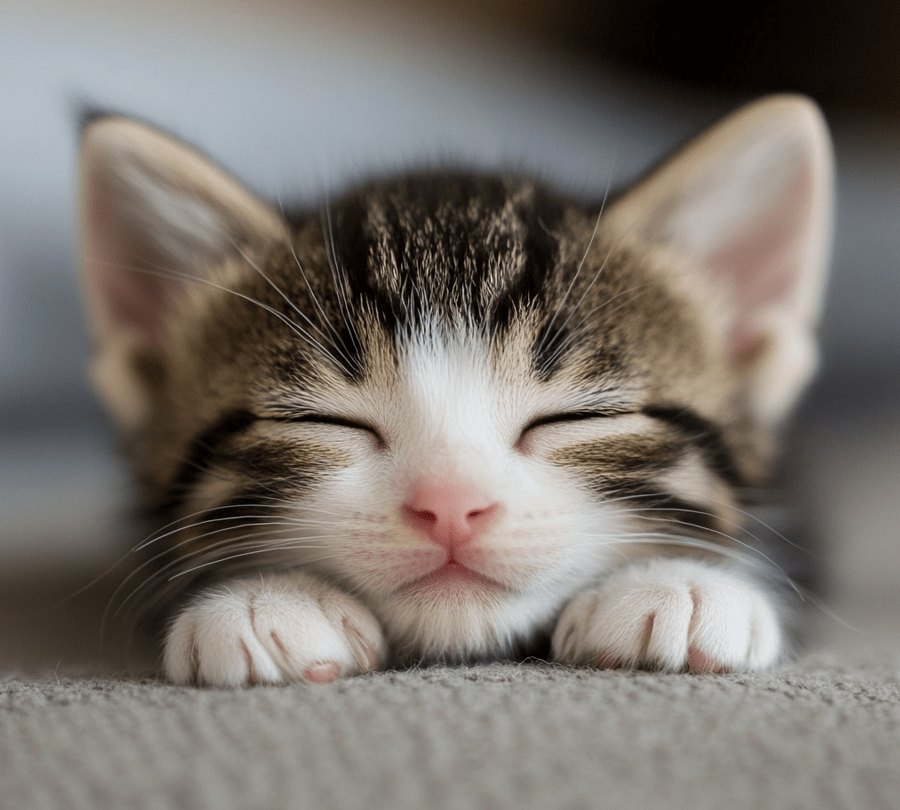
Physical Development: When a newborn kitten is born, it doesn’t have its eyes or ears open and hasn’t even started to develop teeth. But by the end of the week, the ear canals will start to open and their ears will make their debut.
Behavioral Development: The first two weeks is the most restive stage of your kitten’s life. They move their limbs; they sound a quiet cry when you touch them. As a rule, kittens suckle from their mother for around 4 hours a day and this time will generally be purring.
Average weight: 5.3 — 7 ounces.
Critical considerations: If your kitten’s eyes look sealed shut when they are just a few days old it may be very tempting but do not force them to open, you will need patience and most kittens will open their own eyes sometime in their second week.
Week 2:
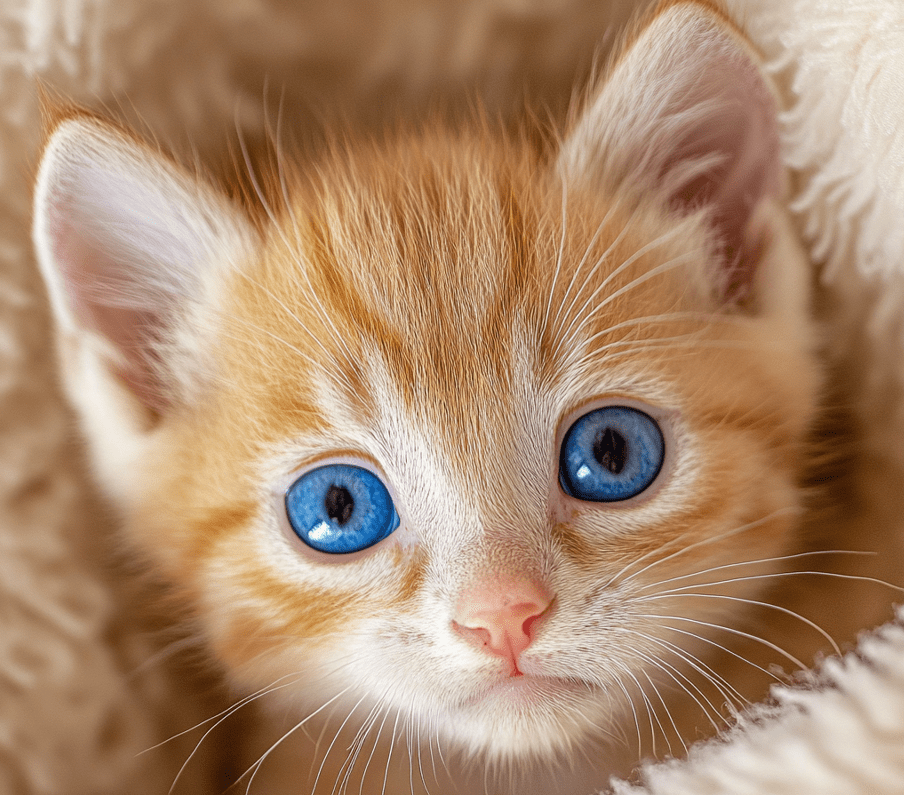
Physical Development: You will see the baby blue eyes of your kitten in this stage. Kittens are born with blue eyes, but those blue eyes will change to their adult color. Yet, it should be understood that their visibility is not good yet.
Behavioral Development: Your kitten may be seen crawling, or taking a few unsteady steps this week showing some wobbliness.
Average Weight: Most kittens in this age group weigh 7 to 10.5 ounces [200 – 300 grams].
Critical considerations: No exposed bright lights that might hurt the eye while they continue developing.
Week 3:
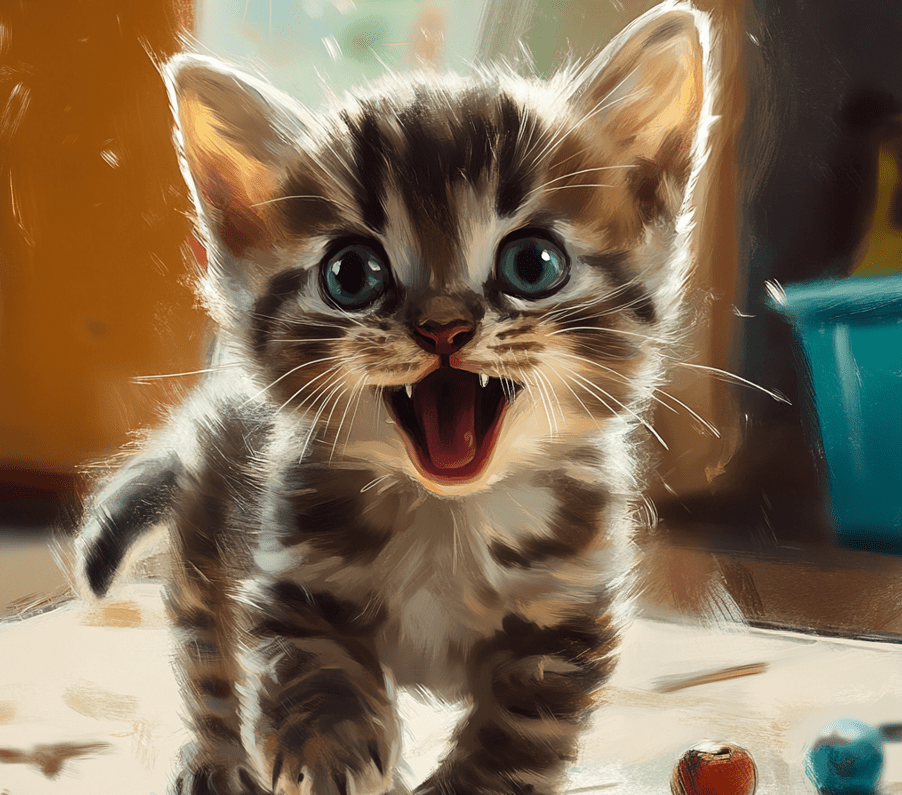
Physical Development: Your kitten’s ears and eyes should be fully open by the end of this week. This is the time when your baby’s first teeth (incisors) will start to appear and their sense of smell will be fully developed.
Behavioral Development: Around week 3, your kitten is into the exploration mode as coordination starts to improve significantly. By this time, they will start walking around and checking out the litter box. Maybe you will also see them trying to groom or wash themselves.
Average Weight: Kittens usually weigh between 8.8 and 14 ounces this week.
Critical considerations: Keep the litter box out for your kitten to start using it when they look ready. Sprinkle some natural, non-clumping litter or shredded newspaper on the bottom so it contains several inches of substrate for them to nest in.
Week 4:
Physical Development: At around 2 weeks old, your kitten will likely have developed their sight and hearing to a great extent. This will also be accompanied by the eruption of their canine teeth and retractable claws.
Behavioral Development: This is the week that you may expect to be able to play with your kitten, since they are now a great deal more interactive and can move much better.
Average Weight: 10.5 ounces – 1.1 pounds
Critical considerations: This might be an ideal time to introduce your kitten to the litter box if you have not already. Moreover, you can make playtime more fun by giving those toys.
Week 5:
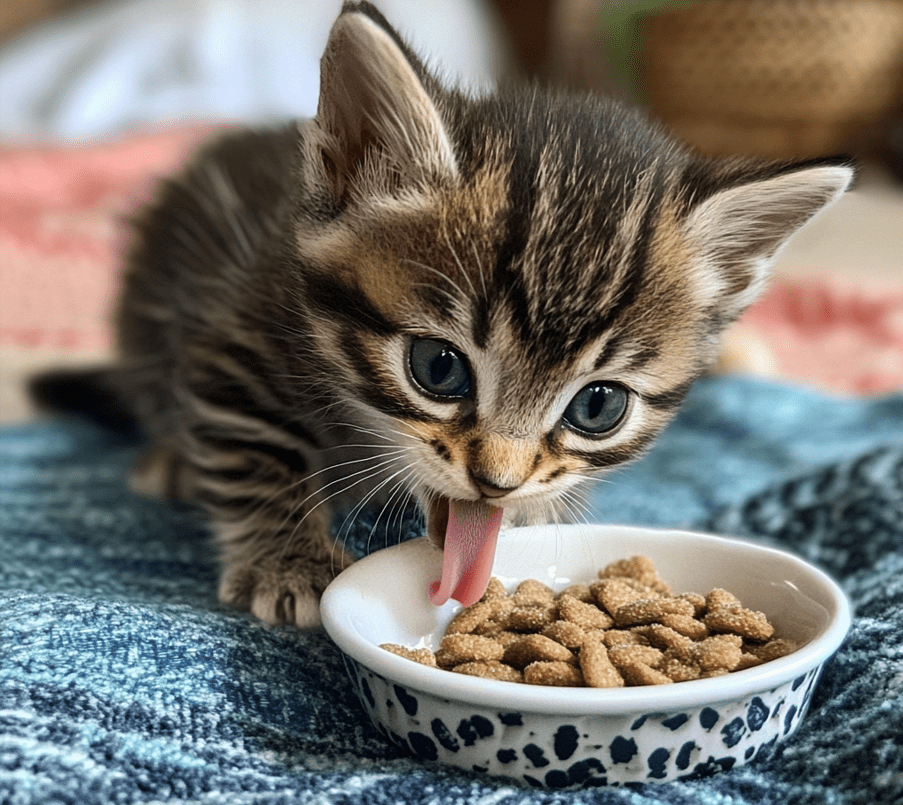
Physical Development: Your kitten’s Permanent premolars will begin to come through this week and they are ready for wet food. You can also attempt to determine the gender of the kitten at this time, but you might need a vet to help.
Behavioral Development: The more they mature and become social, getting to know what kinds of things playtime will start their motor going! Apart from that, it will teach them to use litter boxes.
Average Weight: Normally kittens weigh between 350 and 600g.
Critical considerations: Finally, since the goal of weaning is offering different food types besides just kitten formula and each cat behaves differently when it comes to food, try a slurry on wet cat food mixed with kitten milk and even soak some small pieces of kibble sometimes. Keep in mind that your kitten will still need to have access to her mother — or a bottle of formula, if she is an orphaned kitten.
Week 6:

Physical Growth: This is an important week for your kitten as they finish up the early stages of development. This is when they grow the last set of teeth, and get the maturity in their eyes and ears.
Behavioral Development: Your kitten starts to become more curious and confident at 6 weeks. They have also learned how to jump and land on their feet.
Average Weight: At this stage kittens typically weigh between 14 ounces and 1.6 pounds
Critical considerations: Set an appointment with a vet for the first FVRCP your kitten needs. The vaccine is a trivalent vaccination against Rhinotracheitis, calicivirus and panleukopenia. At this point, it is also a good time to consider trimming your kitten’s toe nails for the first time.
Week 7:
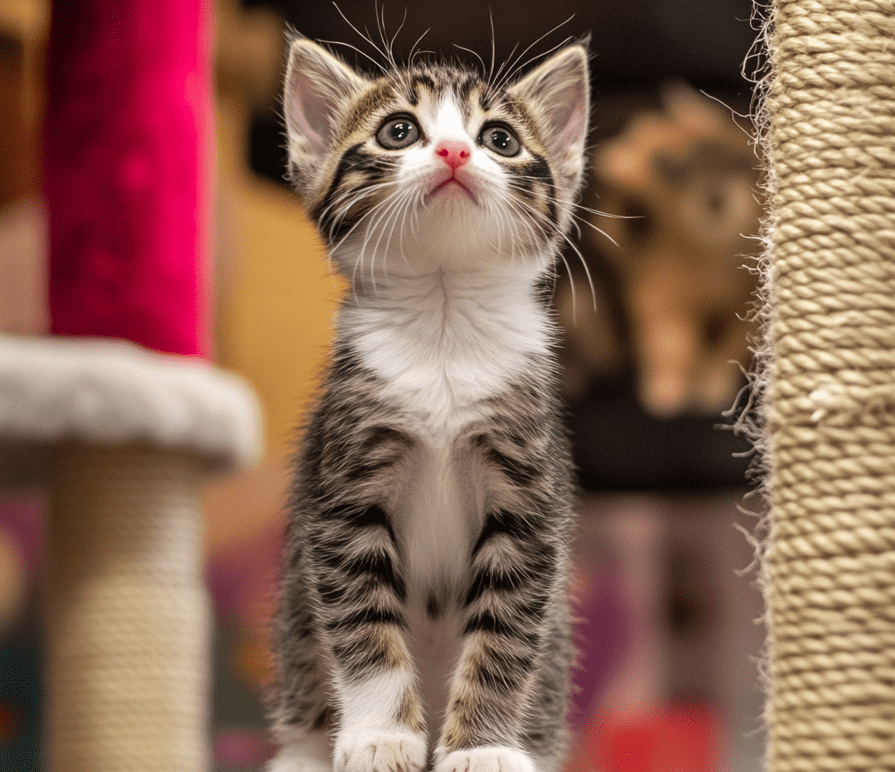
Physical Growth: This week, your kitten has blue eyes that will turn into the permanent adult color. They also are able to control their body temperature now independently of the mother.
Behavioral Development: When kittens enter the seven-week stage, they are extremely playful and energetic as they will climb to heights we never knew possible.
Average Weight: Kitten weights range from 1 – 1.75 pounds at this stage.
Critical considerations: That is the good time to indicate to your kitten a scratching put up and all kinds of recent issues.
Week 8:
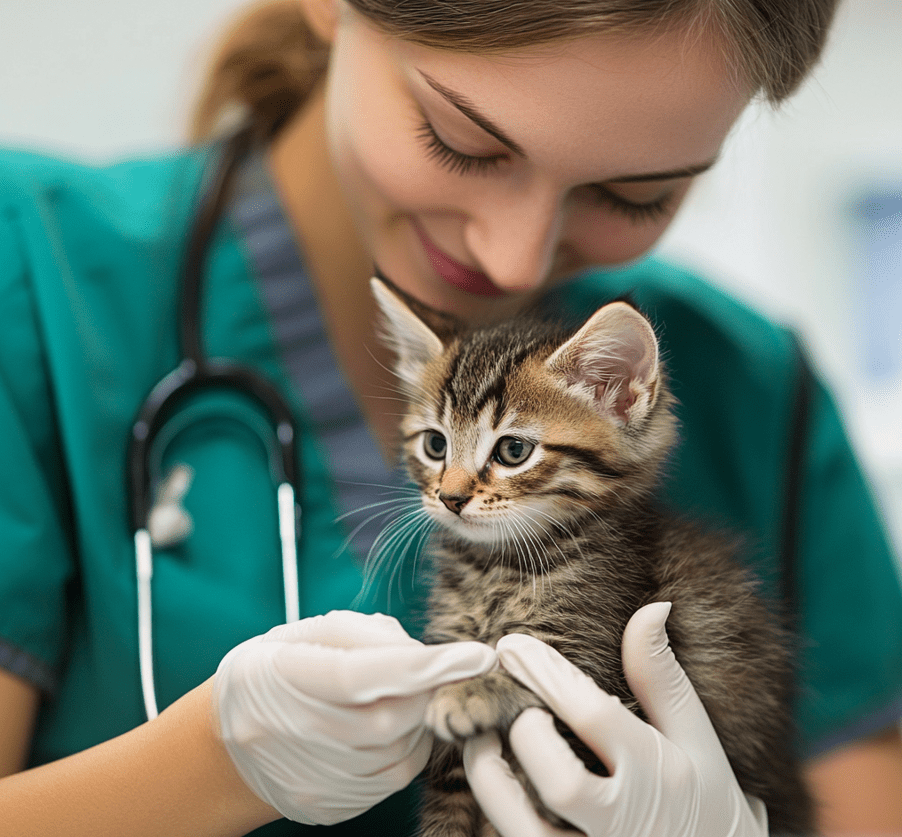
Physical Development: Your kitten has finished most of its physical development at this point.
Behavioral Development: By 8 weeks old, your kitten shows dexterity, balance and energy.
Average Weight: The average weight falls between the ranges of 1.1 – 2 pounds.
Critical considerations: Visit the vet to get a FVRCP booster and go over any other medical issues. The veterinarian may also recommend you deworm your kitten or treat for ear mites.
The process of watching your little, fluffy friend grow from an animal that chews on anything in sight into a social animal with the other animals and ultimately into a young adult cat is fun and exciting. Although this is one of the main parts of getting a new kitten watching them grow and develop over time it’s also important to let this impression remain in your life, you would love to take care over every step they make.

